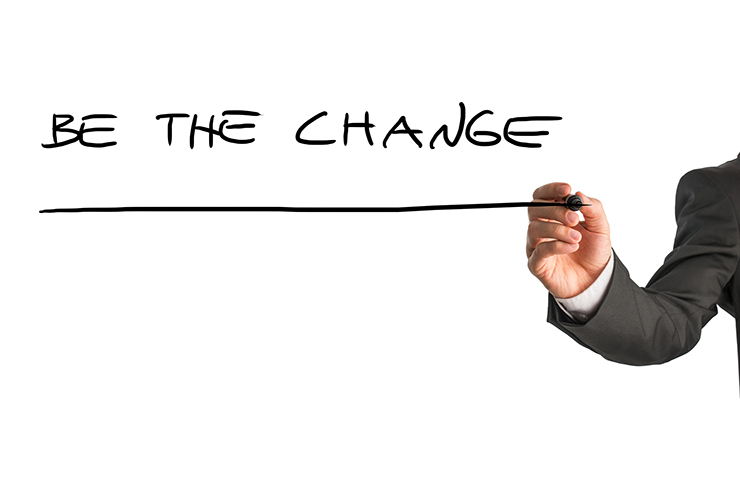In life and business, change happens.
It happens by intent, and it happens by circumstance. Changes can be good and necessary; and they can also be unwelcome and unexpected.
But the certainty is this: if you are alive or are in business (which pretty much covers everyone), you will find that change is a constant companion.
This begs the question:
How can you be an effective change agent?
You can…
- Ignore it.
- Deny it.
- Resist it.
- Accept it.
- Drive it.
- Navigate it.
Ignoring Change
Ignoring change has some merit for areas that you cannot affect and that do not affect you or your values. It is a matter of principles versus preferences. Organizations have been split apart by simple preferential changes, when those changes would have had no significant impact to the organization. As a leader, it is important to hold true to matters of principle but be agile with regard to preferences.
Denying and Resisting Change
Denying and resisting change go hand-in-hand in a tug-of-war kind of way.
Consider a company, for instance, that had been mismanaged to the point of imminent bankruptcy. The changes were evident. And yet, there were team members who buried their heads in the sand and denied the ominous storm clouds on the horizon.
“It will be fine,” they said, as they continued to spend obliviously.
And there were those who resisted the change, who did all they could to prevent further damage and to try and turn the tide.
Accepting Change
Others will accept change as inevitable, feeling powerless to make a difference.
This might be a leader who sighs and says, “What do you expect me to do about it?”
While some changes are good and should be accepted, other changes should not be accepted as inevitable.
Good leaders will show discernment in this area of whether to accept a change or challenge themselves and their team to find a better solution. The key here is not to succumb to weak leadership and just accept a change because you feel powerless to question and confront it.
Driving and Navigating Change
Ultimately, strong leaders need to focus most on the proactive areas of driving and navigating change.
As a leader, you are a decision maker. It is a key responsibility for leadership. As such, you get to decide what changes should be made and when. You base this, not on the power of your position, but on wisdom, discernment, and on the input of those who have expertise and strengths in the area in question.
If you don’t drive change, one thing is certain: someone else’s changes will drive you. And you may not like the ride.
Then there’s navigating change. This may be change you and your organization have initiated, or it may be a change resulting from outside environmental factors.
If a change is going to happen or needs to happen, you, as the leader, cannot hide from it. You must navigate it. Sometimes the only way to deal with change is to run directly into it and push through. Your team depends on you to lead the way.
How can you leverage your strengths to be an effective change agent?
Change is part of life and business. Change management is your responsibility as a leader. Whether it is leading yourself, your team, or your organization, you will want to shore up your strengths in this area.
D-wired Leaders – Tap into your natural strengths of overcoming challenges and leading others through obstacles. Your tenacity for pushing through to results is your superpower when it comes to change.
I-wired Leaders – Agility is your superpower. You adapt easily to change and, in fact, welcome it. When a change has been vetted, you will lead the team through with anticipation and excitement for the growth that it brings.
S-wired Leaders – While you will have a natural hesitation for change, in the end, you will be the one to create the systems and follow-through that bring it about. Stability through change is your superpower.
C-wired Leaders – Your analysis in times of change is a valuable asset to the organization. Your superpower is discernment. You innately will know if a change is good for the organization or not, and you will be able to back up your instincts with well-researched facts and figures. You are gifted in the areas of forecasting and due diligence.
For valuable resources on Leadership Strengths and Tools, click here.
Deb Ingino is a highly sought-after executive coach, mentor, consultant, and speaker worldwide. Deb is well versed in business operations and in the importance of asking key questions most business leaders won’t ask themselves. She brings deep experience in leadership development, strategy, high performance team building and effective communication. She has a passion for leading people to discover and maximize their strengths as well as those of fellow team members, while offering advanced strategies to achieve high performance. Deb is the perfect fit if you’re ready to take your leadership and impact to the next level!

+ view comments . . .